#khalil nasser
Text
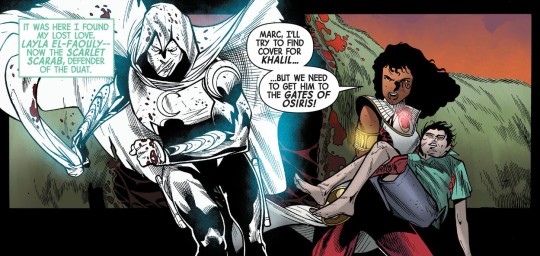





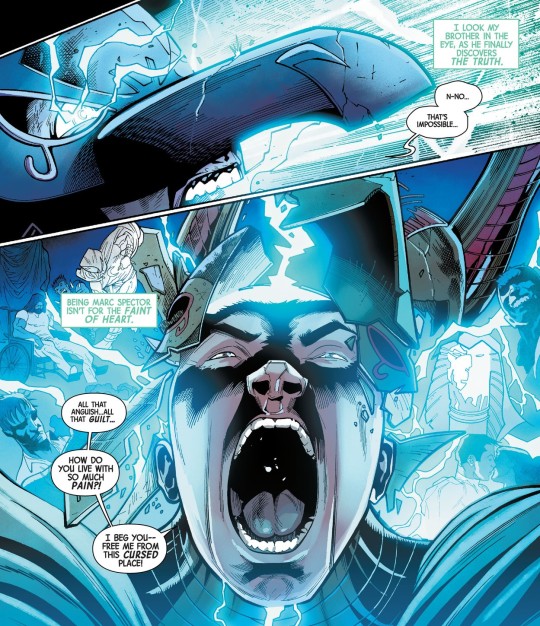

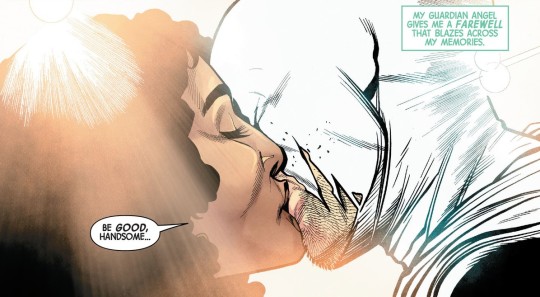
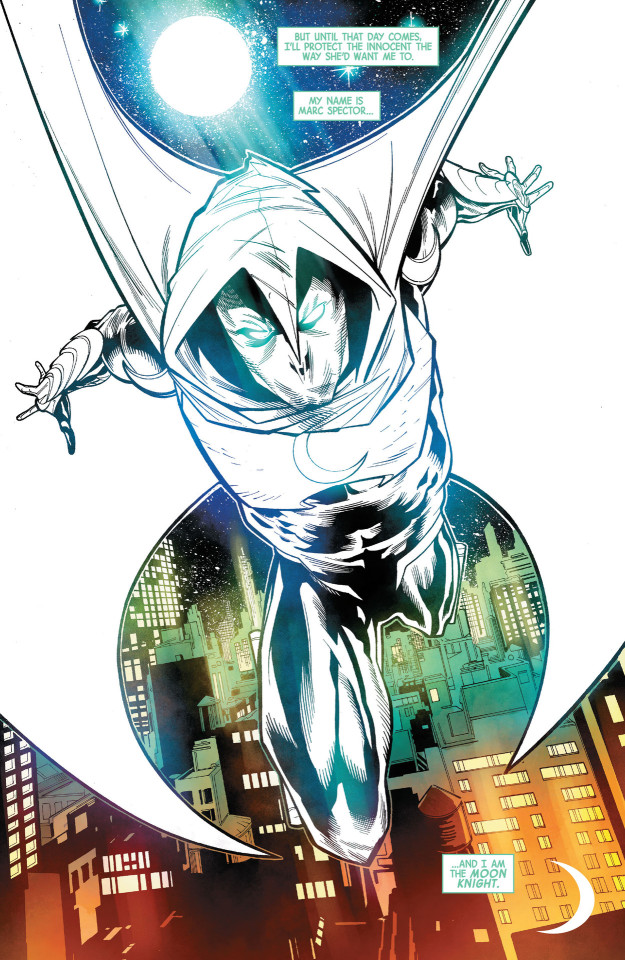
From Moon Knight: City of the Dead #005, “Vengeance Never Dies”
Art by Marcelo Ferreira, Jay Leisten and Rachelle Rosenberg
Written by David Pepose
#moon knight: city of the dead#moon knight#marc spector#scarlet scarab#layla el-faouly#khalil nasser#khonshu#chainsaw#plasma#leila o'toole#black spectre#carson knowles#jackal knight#randall spector#osiris#marvel#comics#marvel comics
25 notes
·
View notes
Text

Killed by Isreal's bombardment and blocakde: 0 years old
Didn't reach their first birthday
Abd al-Jawad Mizar Jamal Hoso (0 years old)
Abdel Khaleq Fadi Khaled Al Baba (0 years old)
Abdel Rahim Ahmed Abdel Rahim Awad (0 years old)
Abdel Rahman Ahmed Essam Salah (0 years old)
Abdel Rahman Samir Salama Saad (0 years old)
Abdel Raouf Ibrahim Abdel Raouf Al-Farra (0 years old)
Abdul Karim Abdullah Omar Shehab (0 years old)
Abdul Karim Kamel Zidane Al-Hawajri (0 years old)
Abdullah Ahmed Khalil Zorob (0 years old)
Abdullah Amir Abdullah Al Khor (0 years old)
Abdullah Muhammad Abdul Hamid Muhanna (0 years old)
Adam Magdy Jaber Al-Dahdouh (0 years old)
Adam Muhammad Fouad Al Agha (0 years old)
Adam Muhammad Samir Abu Ajwa (0 years old)
Ahmed Moamen Ahmed Daloul (0 years old)
Ahmed Mohamed Amin Nofal (0 years old)
Ahmed Muhammad Yasser Dardouna (0 years old)
Ahmed Saeed Ahmed Fouda (0 years old)
Ahmed Shadi Talal Al-Haddad (0 years old)
Ahmed Talaat Ali Barhoum (0 years old)
Aisha Jihad Jalal Shaheen (0 years old)
Alia Abdel Nour Sami Al-Souri (0 years old)
Alma Adnan Jamal Al-Qatrawi (0 years old)
Alma Moamen Muhammad Hamdan (0 years old)
Alma Qais Abdul Karim Al-Zahrani (0 years old)
Alyan Abdul Rahman Alyan Al-Ashqar (0 years old)
Amal Mahmoud Mohamed Saleha (0 years old)
Amal Muhammad Ahmed Al-Bayouk (0 years old)
Amir Mahmoud Zuhdi Al-Masry (0 years old)
Anas Abdul Aziz Muhammad Zahir (0 years old)
Anas Abdullah Bahaa Al-Din Sukayk (0 years old)
Anas Tariq Muhammad Al-Hasanat (0 years old)
Anisa Mahmoud Ahmed Ali (0 years old)
Anwar Muhammad Ahmed Al Hindi (0 years old)
Aseed Hussein Muhammad Abu Hamad (0 years old)
Aseel Amir Ali Al-Ashi (0 years old)
Aseel Muhammad Jumah Dhair (0 years old)
Aws Muhammad Hussein Al-Aleel (0 years old)
Ayat Abdul Aziz Omar Farwaneh (0 years old)
Ayla Uday Abdel Jawad Abu Ras (0 years old)
Badr Yasser Rafiq Abu Habib (0 years old)
Bahaa Mustafa Jamal Musa (0 years old)
Basil Muhammad Hossam Abu Jasser (0 years old)
Bilal Khaled Muhammad Sobh (0 years old)
Bilal Muhammad Kamal Hamdan (0 years old)
Celine Abdel Hadi Adel Daher (0 years old)
Celine Ihab Ayman Al-Bahtiti (0 years old)
Daughter of Dina Abdel Hakim Ayoub Natat (0 years old)
Daughter of Zainab Muhammad Al-Abd Nawas (0 years old)
Diaa Ahmed Abdel Ati Saleh Musa (0 years old)
Diaa Majed Ahmed Kishko (0 years old)
Elena Momen Riad Al-Rifi (0 years old)
Eliana Muhammad Nabil Mekheimer (0 years old)
Ella Muhammad Salem Al-Drimli (0 years old)
Essam Mohammed Essam Farag (0 years old)
Etaf Hassan Riyadh (0 years old)
Ezzat Asaad Ezzat Saq Allah (0 years old)
Fadl Maysara Muhammad Abu Hasira (0 years old)
Fahd Uday Imad Al-Ajez (0 years old)
Farah Hammam Youssef Bahr (0 years old)
Farah Hossam Abdel Karim Hanoun (0 years old)
Farah Suleiman Raed Abu Shabab (0 years old)
Fatima Louay, Rafiq Al-Sultan (0 years old)
Fatima Moatasem Amin Nofal (0 years old)
Fatima Muhammad Rizq Al-Wawi (0 years old)
Fatima Saleh Yasser Al-Hout (0 years old)
Fayrouz Fadi Hamada Abu Salima (0 years old)
Firas Muhammad Abdel Aziz Tamraz (0 years old)
George Sobhi George Al-Souri (0 years old)
Ghaith Khattab Omar Al-Bahloul (0 years old)
Ghaith Yasser Nabil Nofal (0 years old)
Ghazal Asaad Maher Abu Lashin (0 years old)
Ghazal Mahmoud Saeed Al-Haddad (0 years old)
Hala Yasser Hamed Al-Sanwar (0 years old)
Hamza Muhammad Abdel Hamid Ashour (0 years old)
Hassan Hamza Hassan Al-Amsi (0 years old)
Hassan Muhammad Hassan Abu Daqqa (0 years old)
Haya Sharif Bakr Al-Batniji (0 years old)
Hind Khaled Ahmed Jahjouh (0 years old)
Hoda Mustafa Hatem Abu Seif (0 years old)
Hoor Muhammad Ibrahim Al-Mamlouk (0 years old)
Hoor Omar Mahmoud Al-Azaib (0 years old)
Hoor Rashad Saeed Habib (0 years old)
Hoor Yassin Ahmed Sheikh Al-Eid (0 years old)
Ibrahim Ahmed Nasser Shaqura (0 years old)
Ibrahim Al-Muatasem Walid Al-Quqa (0 years old)
Ibrahim Ammar Saad Al-Qara (0 years old)
Iman Muhammad Abdel Fattah Al-Hinnawi (0 years old)
Ismail Ahmed Ismail Farhat (0 years old)
Issa Mahmoud Muhammad Qarmout (0 years old)
Iyad Abdel Rahman Jihad Muheisen (0 years old)
Jamal Muhammad Jamal Al-Maghari (0 years old)
Jannah Hisham Muhammad Hamouda (0 years old)
Jannat Naji Abdel Rahman Abu Hammad (0 years old)
Jihad Muhammad Raafat Al-Dalis (0 years old)
Joan Ali Nasr Amer (0 years old)
Joel Atallah Ibrahim Al-Amsh (0 years old)
Joud Bahaa Al-Din Haider Al-Nadim (0 years old)
Juri Ammar Ibrahim Al-Jarousha (0 years old)
Juri Ayed Ismail Al-Najjar (0 years old)
Juri Darwish Hamed Abu Khatla (0 years old)
Juri Ramadan Muhammad Miqdad (0 years old)
Karim Muhammad Fayez Al-Madhoun (0 years old)
Karima Muhammad Majid Al-Ghoul (0 years old)
Kenan Amin Marwan Abu Shakyan (0 years old)
Khaled Bilal Muhammad Abu Al-Amrain (0 years old)
Khaled Fadi Khaled Al Baba (0 years old)
Lana Yasser Nassif Hegazy (0 years old)
Lana Youssef Emad Loulou (0 years old)
Layan Muhammad Youssef Hussein (0 years old)
Layan Rami Anwar Faisal (0 years old)
Louay Mahmoud Saleh Al-Ajrami (0 years old)
Maha Fadi Khaled Al Baba (0 years old)
Mahmoud Eid Muhammad Nabhan (0 years old)
Mahmoud Fadi Khaled Al-Baba (0 years old)
Mahmoud Youssef Muhammad Abu Shawish (0 years old)
Mai Hatem Asaad Qita (0 years old)
Malak Abdul Rahman Ayesh Darwish (0 years old)
Malak Abdul Salam Ali Abu Saif (0 years old)
Malak Mahmoud Atef Halawa (0 years old)
Malik Mahdi Ahmed Shalouf (0 years old)
Malik Muhammad Shafiq Abu Al-Kass (0 years old)
#gaza#free gaza#gaza strip#palestine#gazagenocide#gaza news#gazaunderfire#gazaunderattack#free palestine#save gaza
88 notes
·
View notes
Text

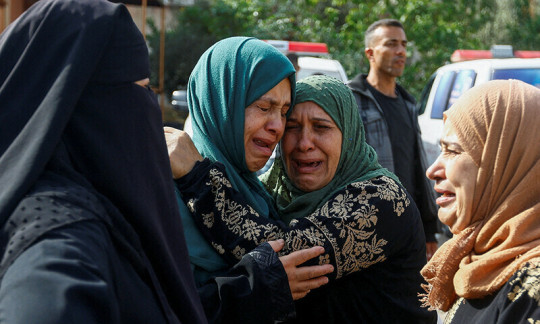
"On the third day of the war, while I was working at the emergency unit in Nasser Hospital, I discovered my sister had been killed with her husband and children," [Mahmud al-Astal] said.
Those strikes razed entire buildings, including one where Astal's 40-year-old sister Sadafah died alongside her husband Hussein, also 40, and their children Fadwa, Azar, Ahmad and Suleiman, aged between six and 13.
"Ever since my sister was killed... the nightmares don't leave me..." Astal said.
"My children dream of travelling one day. Now I don't know if they will come out of this war alive."
Despite the tragedy, he is determined to continue his vital work.
"We have no other choice but to work and serve the injured to save them."
[...]
[Respiratory] physician Raed [al-Astal] was at the hospital on Monday when he received a panicked call from his wife saying a strike had hit the building opposite theirs.
He hurried to the emergency unit where the victims had been taken, and found his relatives were among the dead.
"My aunt, her husband and their children as well as my cousin's wife were killed," he said.
"The stench of death is everywhere, in every neighbourhood, every street and every house."
-- "Medics discover with horror relatives among Gaza dead" by Khan Yunis for AFP, 28 Oct 2023 (Content warning: descriptions of the dead bodies in link)
On 26 October, the Palestinian Ministry of Health released the list of names of Palestinians killed since 7 October. Among them, from the al-Astal family, are:
Aisha Khalil Hamdan (72);
Wahba Abdullah Hussein (65);
Ibrahim Hamid Hussein (62) and his children Afnan Ibrahim Hamid (33) and Ibtihal Ibrahim Hamid (24);
Muhammad Suleiman Turki (61) and his children Samar Muhammad Suleiman (32), Usama Muhammad Suleiman (24), Hisham Muhammad Suleiman (23), Samah Muhammad Suleiman (19), and Sarah Muhammad Suleiman (17);
Nadia Yassin Hussein (60);
Salwa Muhammad Khalil (60);
Hanaa Ibrahim Naeem (59);
Suleiman Muhammad Suleiman (58);
Yousry Ahmed Youssef (55);
Shafiqa Shehadeh Bahri (54);
Anwar Muhammad Ali (54) and his children Bilal Anwar Muhammad (19) and Safiya Anwar Muhammad (39);
Waela Ahmed Mustafa (51) and her sibling Wejdan Ahmed Mustafa (46);
and their brother Wael Ahmed Mustafa (49) and his children Ahmed Wael Ahmed (16), Zain Wael Ahmed (14), Haya Wael Ahmed (12), Muhammad Wael Ahmed (9), Hamza Wael Ahmed (3), and Salim Wael Ahmed (less than a year old);
Marwa Youssef Muhammad (48);
Abdullah Musa Muhammad (48) and his child Hayat Abdullah Musa (6);
Raafat Abdel Karim Mustafa (47) and his children Sham Raafat Abdel Karim (24), Dania Raafat Abdel Karim (17), Rahaf and Abdel Karim Raafat Abdel Karim (11), and Ahmed Raafat Abdel Karim (9);
Ramzi Abdel Karim Mustafa (45) and his children Muhammad Ramzi Abdel Karim (17) and Karim Ramzi Abdel Karim (11);
Suhair Ahmed Ahmed (44);
Muhammad Kamal Muhammad (44);
Nidaa Abdel Hamid Saeed (43);
Ola Tawfiq Abdel Qader (41);
Sadafah Suleiman Uthman (39);
Hussein Ahmed Omar (38) and his children Fadwa Hussein Ahmed (13), Ahmed Hussein Ahmed (12), Suleiman Hussein Ahmed (8), Hazar Hussein Ahmed (6), and Elaf Hussein Ahmed (2);
Hisham Hussein Yassin (37) and his children Riad Hisham Hussein (13) and Layan Hisham Hussein (10);
Zakaria Ali Ayesh (73) and his children Alaa Zakaria Ali (36), Amal Zakaria Ali (24), and Munib Zakaria Ali (28);
his son Muhammad Zakaria Ali (38) and his children Jana Muhammad Zakaria (14), Raghad Muhammad Zakaria (12), Lana Muhammad Zakaria (10), and Ali Muhammad Zakaria (3);
his son Omar Zakaria Ali (31) and his children Riman Omar Zakaria (4) and Amir Omar Zakaria (1);
and his son Abdullah Zakaria Ali (34) and his sons Yamen Abdullah Zakaria (7), Rayan Abdullah Zakaria (less than a year old), and Zakaria Abdullah Zakaria (2);
Muhammad Abdel Majeed Ali (34);
Amamah Abdel Nasser Suleiman (34) and her siblings Hafsa Nasser Suleiman (24), Muhammad Nasser Suleiman (22), Sarah Nasser Suleiman (19), Fatima Nasser Suleiman (15), and Wiam Nasser Suleiman (11);
and their brother Hamza Nasser Suleiman (26) and his daughter Marwa Hamza Nasser (1);
Muhammad Amin Ahmed (33);
Majid Ali Hamid (28);
Khalil Omar Muhammad (27);
Magda Muhammad Abdel Majeed (22);
Muhammad Mahmoud Ahmed (22) and his sister Abeer Mahmoud Ahmed (16);
Rakan Khaled Muhammad (20);
Abdul Rahman Muhammad Ahmed (17);
Ahmed Khaled Ibrahim (17);
Muhammad Ali Zakaria (15) and his siblings Zakaria Ali Zakaria (14) and Majd Ali Zakaria (10);
Sama Salim Yassin (11) and her sister Roua Salim Yassin (2);
Joud Hamid Nasser (4) and their sister Janan Hamid Nasser (1);
Joan Yahya Youssef (4) and her infant brother Mian Yahya Youssef;
Asmaa Ahmed Muhammad;
Ismail Mohieddin Ismail (10);
Ayesh Musab Ibrahim (4);
Muhammad Mahmoud Hamdan (29);
and Wafa Abdel Qader Ahmed (24).
You can read more about the human lives lost in Palestine on the Martyrs of Gaza Twitter account and on my blog.
13 notes
·
View notes
Text
Ministry of Health:
—
The toll of martyrs in the West Bank today, Thursday, reached 18, including a 15-year-old child.
The names and ages of today's Thursday martyrs in the West Bank governorates:
Martyrs of Jenin
Ayham Mohammed Ibrahim Amer (23 years old)
Mohammed Nasser Hassan Matahen (30 years old)
Raafat Aql Omar Abu Aql (21 years old)
Mahmoud Hussein Ali Abu Al-Nada (47 years old)
Qais Raed Jamal Dwaikat (21 years old)
Lotfi Sayel Howaiti (21 years old)
Mohammed Abdul Karim Al-Sabbagh (30 years old)
Mohammed Youssef Azzam Zayed (15 years old)
Mu'tasim Fawaz Issa (32 years old)
Ahmed Mahmoud Shafiq Khalaf (18 years old)
Mohammed Tareq Hussein Fayyad (19 years old)
Ibrahim Hassan Zaher Abahreh (25 years old)
Ahmed Taysir Mahmoud Abu Qotnah (22 years old)
Thaer Mohammed Marai Abu Qotnah (23 years old)
Martyr of Al-Amari Camp - Ramallah
Mohannad Abdul Qader Jad Al-Haq (29 years old)
Martyr of Nablus
Qadri Azmi Qadri Hattab (22 years old)
Martyr of Dura - Al-Khalil
Anas Nasser Mohammed Abu Atwan (30 years old)
Martyr of Beit Fajjar - Bethlehem
Mohammed Fareed Hamdan Thawabteh (51 years old)
Palestinian Ministry of Health in Gaza:
—
10,812 martyrs, including 4,412 children, 2,918 women, and 667 elderly, as well as 26,905 injured since the beginning of the aggression on Gaza.
6 notes
·
View notes
Text
March 15, 2001, Israeli army targets Palestinian children in grenade attack on playground
Palestinian child, wounded in Israeli army grenade attack on his schoolyard, is carried to an ambulance
“In the Old City of Hebron, (March 15, 2001), Israeli soldiers lobbed a stun grenade into a schoolyard during an elementary students’ demonstration. The students were throwing stones at Israeli cars, Israeli officials said. Six students suffered moderate or light wounds, including burns, broken bones and blisters, Palestinian officials said. The Israelis said five Palestinian children had experienced ‘light impact injuries from the grenade.’
“‘The army sees the removal of children from the circle of violence as extremely important,’ an Israeli army statement said. The army will ‘continue to act against anyone trying to compromise the security of Israeli citizens,’ it said.”
Source: N.Y. Times, March 16, 2001, p. A-10
“Six Palestinian children suffered burns on Thursday (March 15, 2001) when Israeli soldiers threw a stun grenade into a West Bank schoolyard in new violence after an Israeli pledge to ease its blockade on Palestinians. Doctors in Hebron said three of the six children sustained burns to the head, hands and back and the other three were suffering from blisters and shock. ‘Why did they throw the grenade into the yard? This is only a provocation,’ said teacher Mohammed Hawaismah as parents carried children out of the school and into ambulances.”
Source: Reuters, March 15, 2001
May 7, 2001, Israelis Kill Baby Girl and School-Teacher, Wound Ten other Children in Refugee Camp
Khan Yunis Refugee Camp, Palestine, Israeli troops shelled homes in this Arab refugee camp today and fired large-caliber machine guns, killing a 4-month-old baby girl and wounding 24 civilians. Doctors said 10 Palestinian children were among the injured.
One Israeli cannon shell hit the shack of the Hijo family in the refugee camp, instantly killing 4-month-old Iman Hijo, with shrapnel tearing a hole into the infant’s back. The girl’s 19-year-old mother, as well as three brothers and sisters, were wounded, including 18-month-old Mahmoud Hijo, was in intensive care at Nasser Hospital with shrapnel wounds, doctors said.
The slain infant’s uncle, Wael Hijo, carried the girl’s body from the hospital’s autopsy room to the X-ray department. In the emergency room, Iman’s 7-year-old aunt, Dunya, sat on a bed with a dazed look on her face, her frilly white-and-green dress pulled up above scraped and bandaged legs. “They killed the baby,” Dunya said, then burst into tears.
Israeli troops also fired on the refugee camp’s Khaldieh School in the West Bank, killing a Palestinian school-teacher.
June 2001, Ali Murad Abu Shaweesh was 12 when Israeli soldiers shot him in the back. Ali was killed on the same day in June, 2001 that Sharon refused to let the Israeli foreign minister, Shimon Peres, meet with Yasir Arafat, yet his death also went unnoticed by American television news. But not entirely unnoticed, since the Israeli soldiers, who taunted the Palestinian boys over loudspeakers outside the Khan Yunis refugee camp in the Gaza Strip, goading them to come out and throw rocks, did so under the gaze of Chris Hedges, a reporter for the New York Times.
July 7, 2001, Israeli Army Opens Fire on Children’s Playground
“Ibrahim Al-Mugrabi weeps over his 11-year-old son, Khalil Ibrahim, who was slain in the Rafah section of the Gaza ghetto after the Israeli army strafed the boy’s playground with machine gun fire.
Khalil Ibrahim al-Mugrabi, 11, was shot in the head and killed July 7, 2001 near Rafah in the Gaza ghetto. Two other Arab children playing with him were wounded, one seriously, after the Israeli army sprayed machine gun fire at a crowd of Arab children.
The children were gunned down by Israeli soldiers from a Jewish guard tower as they were playing. Doctors said the dead Palestinian boy was shot in the head and that a 10-year-old boy was seriously wounded with a gun shot to the stomach. A third Palestinian boy, age 12, was injured less seriously.
Mohammed Abu-Shikadem, 29, who was nearby when the shootings took place, said that a group of some 30 children were playing near the refugee camp when he heard a burst of machine gun fire from the Israeli guard tower. ‘Two of the children fell in front of my eyes,’ Abu-Shikadem said.”
Ibrahim Al-Mugrabi weeps over his 11-year-old son, Khalil Ibrahim, who was slain in the Rafah section of the Gaza ghetto after the Israeli army strafed the boy's playground with machine gun fire.
July 19, 2001, “The body of murdered 3-month-old Palestinian infant Diya Tmaizi, center, is flanked by murdered Palestinian civilians Mohammed Hilmy Tmaizi, 20, right, and Mohammed Salameh Tmaizi, 22, left, in the West Bank village of Idna, near Hebron. The Palestinian baby and the other civilians were shot and killed, and at least four other Palestinian civilians were injured late Thursday, July 19, 2001, near Idna. According to Israeli radio, a Jewish ‘settler’ group took responsibility for the murders.”
July 31, 2001, Israeli government assassinated Palestinian leaders Jamal Mansour and his cousin Omar Mansour, in an attack on their office in the West Bank town of Nablus. Six other Palestinians were killed in the Jewish ambush, including two little boys, Bilal Abu Khader, 8, and Ashraf Abu Khader, 5.
August 5, 2001, Amer Mansour Habiri 23, who was assassinated by Israelis in a missile attack on Aug. 5, 2001 in the West Bank town of Tulkarem.
August 12, 2001, Israeli soldiers shot eight-year-old Palestinian girl, Sabreen Abu Sneineh, in the head, in Hebron.
August 15, 2001, 27 year old Emad Abu Sneineh was assassinated by Israeli agents outside his home in Hebron.
August 19, 2001, Mohammed Abu Arrar, 14, shot to death in the Gaza ghetto by Israeli soldiers.
Aug. 22, 2001, The automobile of an 18 year old Palestinian incinerated by an Israeli death squad at the Bureij refugee camp, outside the Gaza ghetto, Aug. 22, 2001. The Israelis sought to assassinate his father. The teenage son was killed instead. Murders of goyim (non-Jews) in this manner are dismissed as “collateral damage” by the Judeo-masonic establishment in America.
August 23, 2001, Mohammed …Zionist occupation troops shot dead the 11-year old Palestinian boy in the Gaza ghetto on August, 23, 2001. Haaretz newspaper reported: “Witnesses said that Mohammed Zurub was shot in the heart after throwing stones at IDF (Israeli) troops.”
September 9, 2001, 13-year-old Mohammed Abu Libda, who was shot to death by Israeli troops.
The sister of 13-year-old Mohammed Abu Libda, who was shot to death by Israeli troops, cries during his funeral as her brother's body is brought home in southern Gaza, September 9, 2001.
November 22, 2001, five Palestinian school boys ages 7 to 14 were on their way to classes in the Gaza strip when they were killed by a bomb planted by Israeli forces.
Israel “....places explosive charges where children are likely to pass and then claims that only the other side practices terrorism?”
Gideon Levy,“On The Way To School,” Ha’aretz, Nov. 26, 2001
December 10, 2001, Two-year-old victim, Burhan Sidir blown apart by Israelis blew him apart. His head was found in the street. His legs were in different places. 13 year old Shadi Arafi killed by Israeli forces. Two brothers, aged 8 and 10 were also seriously injured in the Dec. 10 Israeli attack.
13 year old Shadi Arafi
December 10, 2001, “Palestinian activist Muhammad Sidir, 24, had his face maimed and burned and his eyes blinded by a U.S. made Israeli helicopter firing missiles in a crowded intersection during an assassination attempt on Sidir. Two Palestinian children died in the attacks and two other children were injured. Israeli helicopter gunships hovered over the carnage for five minutes, preventing immediate medical attention from being administered to the wounded and dying.” http://www.revisionisthistory.org/palestine7.html
December 17, 2001, Israeli troops murder Palestinian activist Yacoub Aidkadik
December 18, 2001, Mohammed Houmeduk, 12, shot and killed in cold blood Dec. 18, 2001 in the Khan Younis refugee camp in the Gaza Strip, by Israeli soldiers.
0 notes
Text
Pas moins de 146 putschs en Afrique depuis 1952. Un triste record classe l'Afrique parmi les continents les plus instables depuis la Seconde Guerre mondiale. La tentative de coup d'État qui se déroule en ce moment même au Gabon est en effet la 146e du nom depuis 1945 et le vaste mouvement de décolonisation des années 1960. Selon nos décomptes, 41 pays d'Afrique ont connu au moins une tentative sérieuse de renversement du pouvoir.
146 putschs en Afrique depuis 1952
Intervention militaire au Niger serait une déclaration de guerre au Burkina Faso et au Mali 1
L'Afrique est le continent qui a connu le plus de coups d'État depuis la fin de la colonisation. Selon une étude de l'Université de Heidelberg, il y a eu pas moins de 146 putschs en Afrique depuis 1952, dont 90 réussis et 56 avortés.
Ces événements ont souvent entraîné des changements de régime, des violences politiques et des crises humanitaires.
Dans le monde, 7 coups d'État sur 10 environ ont lieu en Afrique. Sur les 146 coups, 37 ont échoué, soit un taux de réussite de 75 % qui laisse à penser que la tentative de renverser le pouvoir est souvent payante?
Dans nos calculs, nous avons exclu les mutineries ou complots déjoués avant leur déclenchement, comme à Djibouti en février 2022.
Nasser, premier putschiste d'une longue série
La-guerre-par-les-m--dias-et-le-triomphe-de-la-propagande
L'Égypte inaugure cette longue série lorsque, dans la nuit du 22 au 23 juillet 1952, Nasser renverse la monarchie du roi Farouk Ier, heureusement sans effusion de sang.
Il faut attendre 1958 pour assister au deuxième coup d'État du continent : il a lieu au Soudan, le 17 novembre, quand l'armée empêche le Parlement de siéger et porte au pouvoir le général Ibrahim Abboud.
La République du Soudan avait obtenu son indépendance le 1er janvier 1958. Fait particulier : c'est le Premier ministre, Abdallah Khalil, un général à la retraite, qui a planifié ce coup d'État militaire contre son propre gouvernement de coalition?
les généraux soudanais en guerre
→À lire aussi
Gabon : "entre les militaires putschistes et l'opposition, une période de négociations"
Le Soudan, depuis, détient le record des putschs avec 10 renversements ou tentatives, le dernier en date remontant au 25 octobre 2021, lorsque l'armée soudanaise dépose le gouvernement de transition.
Le Premier ministre Abdallah Hamdok est arrêté, puis réinstallé dans ses fonctions le 21 novembre, avant de se retirer le 2 janvier 2022.
Guerre en Ukraine en un coup d'œil Avancée des troupes russes et bombardements
→À lire aussi
Tentative de coup d'État au Gabon : ce qu'il faut savoir sur le pays
Le Soudan précède deux autres pays particuliers éruptifs : Le Burundi, 8 coups d'État ou tentatives, depuis son indépendance le 1er juillet 1962, à égalité avec le Burkina Fasso (ancienne Haute Volta), indépendant depuis août 1960.
Soit environ une moyenne d'un coup d'État ou tentative tous les sept à huit ans. Parmi les pays les plus instables figurent également le Nigeria (7 coups d'État), le Congo, le Bénin (6), la République centrafricaine (6), le Tchad (6), les Comores (5), le Ghana (5), le Mali (5), la Guinée-Bissau (5), l'Éthiopie (4), l'Ouganda (4)?
Des dirigeants à vie
Le Niger, qui fait l'actualité ces jours-ci, avec le renversement et la séquestration du président Mohamed Bazoum, en est à son 6e putsch ou tentative depuis son indépendance le 18 décembre 1958.
Le premier putsch a eu lieu le 15 avril 1974, lorsque Senny Kountché prend le pouvoir par les armes avec le titre de « président du Conseil militaire suprême de la République du Niger ». Il exerce, de facto, la fonction de chef de l'État jusqu'à sa mort en novembre 1987.
146 putschs en Afrique depuis 1952
→À lire aussi
Niger : « La France paie en boomerang 60 ans d'interventionnisme en Afrique
Parmi les pays qui n'ont pas connu de coup d'État, on compte l'Afrique du Sud, où la transition vers la fin de l'apartheid s'est faite en douceur.
Le Malawi n'a pas connu de coup d'État dans la mesure où la Constitution, en 1970, a été modifiée pour confier à Hastings Kamuzu Banda le titre de « président à vie ».
Le régime est devenu une dictature mais Banda a dû quitter le pouvoir en 1994 à l'âge vénérable de 98 ans, non sans avoir été battu lors d'élections libres.
Si on découpe les périodes par décades, la palme revient aux seventies, avec 34 coups d'État ou tentatives, sous l'effet de la Guerre froide. Les années 1960 et 1980 culminent à 25 putschs ou tentatives.
Après la décennie 1980, on constate une décrue : 19 dans la décennie 1990 et 17 dans les années 2000, 15 dans les années 2010. Depuis 2020, en seulement trois ans et demi, les coups portés au pouvoir s'élèvent déjà à 10. Tout annonce une nouvelle phase d'instabilité en Afrique.
0 notes
Text
Pas moins de 146 putschs en Afrique depuis 1952. Un triste record classe l'Afrique parmi les continents les plus instables depuis la Seconde Guerre mondiale. La tentative de coup d'État qui se déroule en ce moment même au Gabon est en effet la 146e du nom depuis 1945 et le vaste mouvement de décolonisation des années 1960. Selon nos décomptes, 41 pays d'Afrique ont connu au moins une tentative sérieuse de renversement du pouvoir.
146 putschs en Afrique depuis 1952
Intervention militaire au Niger serait une déclaration de guerre au Burkina Faso et au Mali 1
L'Afrique est le continent qui a connu le plus de coups d'État depuis la fin de la colonisation. Selon une étude de l'Université de Heidelberg, il y a eu pas moins de 146 putschs en Afrique depuis 1952, dont 90 réussis et 56 avortés.
Ces événements ont souvent entraîné des changements de régime, des violences politiques et des crises humanitaires.
Dans le monde, 7 coups d'État sur 10 environ ont lieu en Afrique. Sur les 146 coups, 37 ont échoué, soit un taux de réussite de 75 % qui laisse à penser que la tentative de renverser le pouvoir est souvent payante?
Dans nos calculs, nous avons exclu les mutineries ou complots déjoués avant leur déclenchement, comme à Djibouti en février 2022.
Nasser, premier putschiste d'une longue série
La-guerre-par-les-m--dias-et-le-triomphe-de-la-propagande
L'Égypte inaugure cette longue série lorsque, dans la nuit du 22 au 23 juillet 1952, Nasser renverse la monarchie du roi Farouk Ier, heureusement sans effusion de sang.
Il faut attendre 1958 pour assister au deuxième coup d'État du continent : il a lieu au Soudan, le 17 novembre, quand l'armée empêche le Parlement de siéger et porte au pouvoir le général Ibrahim Abboud.
La République du Soudan avait obtenu son indépendance le 1er janvier 1958. Fait particulier : c'est le Premier ministre, Abdallah Khalil, un général à la retraite, qui a planifié ce coup d'État militaire contre son propre gouvernement de coalition?
les généraux soudanais en guerre
→À lire aussi
Gabon : "entre les militaires putschistes et l'opposition, une période de négociations"
Le Soudan, depuis, détient le record des putschs avec 10 renversements ou tentatives, le dernier en date remontant au 25 octobre 2021, lorsque l'armée soudanaise dépose le gouvernement de transition.
Le Premier ministre Abdallah Hamdok est arrêté, puis réinstallé dans ses fonctions le 21 novembre, avant de se retirer le 2 janvier 2022.
Guerre en Ukraine en un coup d'œil Avancée des troupes russes et bombardements
→À lire aussi
Tentative de coup d'État au Gabon : ce qu'il faut savoir sur le pays
Le Soudan précède deux autres pays particuliers éruptifs : Le Burundi, 8 coups d'État ou tentatives, depuis son indépendance le 1er juillet 1962, à égalité avec le Burkina Fasso (ancienne Haute Volta), indépendant depuis août 1960.
Soit environ une moyenne d'un coup d'État ou tentative tous les sept à huit ans. Parmi les pays les plus instables figurent également le Nigeria (7 coups d'État), le Congo, le Bénin (6), la République centrafricaine (6), le Tchad (6), les Comores (5), le Ghana (5), le Mali (5), la Guinée-Bissau (5), l'Éthiopie (4), l'Ouganda (4)?
Des dirigeants à vie
Le Niger, qui fait l'actualité ces jours-ci, avec le renversement et la séquestration du président Mohamed Bazoum, en est à son 6e putsch ou tentative depuis son indépendance le 18 décembre 1958.
Le premier putsch a eu lieu le 15 avril 1974, lorsque Senny Kountché prend le pouvoir par les armes avec le titre de « président du Conseil militaire suprême de la République du Niger ». Il exerce, de facto, la fonction de chef de l'État jusqu'à sa mort en novembre 1987.
146 putschs en Afrique depuis 1952
→À lire aussi
Niger : « La France paie en boomerang 60 ans d'interventionnisme en Afrique
Parmi les pays qui n'ont pas connu de coup d'État, on compte l'Afrique du Sud, où la transition vers la fin de l'apartheid s'est faite en douceur.
Le Malawi n'a pas connu de coup d'État dans la mesure où la Constitution, en 1970, a été modifiée pour confier à Hastings Kamuzu Banda le titre de « président à vie ».
Le régime est devenu une dictature mais Banda a dû quitter le pouvoir en 1994 à l'âge vénérable de 98 ans, non sans avoir été battu lors d'élections libres.
Si on découpe les périodes par décades, la palme revient aux seventies, avec 34 coups d'État ou tentatives, sous l'effet de la Guerre froide. Les années 1960 et 1980 culminent à 25 putschs ou tentatives.
Après la décennie 1980, on constate une décrue : 19 dans la décennie 1990 et 17 dans les années 2000, 15 dans les années 2010. Depuis 2020, en seulement trois ans et demi, les coups portés au pouvoir s'élèvent déjà à 10. Tout annonce une nouvelle phase d'instabilité en Afrique.
0 notes
Text
Pas moins de 146 putschs en Afrique depuis 1952. Un triste record classe l'Afrique parmi les continents les plus instables depuis la Seconde Guerre mondiale. La tentative de coup d'État qui se déroule en ce moment même au Gabon est en effet la 146e du nom depuis 1945 et le vaste mouvement de décolonisation des années 1960. Selon nos décomptes, 41 pays d'Afrique ont connu au moins une tentative sérieuse de renversement du pouvoir.
146 putschs en Afrique depuis 1952
Intervention militaire au Niger serait une déclaration de guerre au Burkina Faso et au Mali 1
L'Afrique est le continent qui a connu le plus de coups d'État depuis la fin de la colonisation. Selon une étude de l'Université de Heidelberg, il y a eu pas moins de 146 putschs en Afrique depuis 1952, dont 90 réussis et 56 avortés.
Ces événements ont souvent entraîné des changements de régime, des violences politiques et des crises humanitaires.
Dans le monde, 7 coups d'État sur 10 environ ont lieu en Afrique. Sur les 146 coups, 37 ont échoué, soit un taux de réussite de 75 % qui laisse à penser que la tentative de renverser le pouvoir est souvent payante?
Dans nos calculs, nous avons exclu les mutineries ou complots déjoués avant leur déclenchement, comme à Djibouti en février 2022.
Nasser, premier putschiste d'une longue série
La-guerre-par-les-m--dias-et-le-triomphe-de-la-propagande
L'Égypte inaugure cette longue série lorsque, dans la nuit du 22 au 23 juillet 1952, Nasser renverse la monarchie du roi Farouk Ier, heureusement sans effusion de sang.
Il faut attendre 1958 pour assister au deuxième coup d'État du continent : il a lieu au Soudan, le 17 novembre, quand l'armée empêche le Parlement de siéger et porte au pouvoir le général Ibrahim Abboud.
La République du Soudan avait obtenu son indépendance le 1er janvier 1958. Fait particulier : c'est le Premier ministre, Abdallah Khalil, un général à la retraite, qui a planifié ce coup d'État militaire contre son propre gouvernement de coalition?
les généraux soudanais en guerre
→À lire aussi
Gabon : "entre les militaires putschistes et l'opposition, une période de négociations"
Le Soudan, depuis, détient le record des putschs avec 10 renversements ou tentatives, le dernier en date remontant au 25 octobre 2021, lorsque l'armée soudanaise dépose le gouvernement de transition.
Le Premier ministre Abdallah Hamdok est arrêté, puis réinstallé dans ses fonctions le 21 novembre, avant de se retirer le 2 janvier 2022.
Guerre en Ukraine en un coup d'œil Avancée des troupes russes et bombardements
→À lire aussi
Tentative de coup d'État au Gabon : ce qu'il faut savoir sur le pays
Le Soudan précède deux autres pays particuliers éruptifs : Le Burundi, 8 coups d'État ou tentatives, depuis son indépendance le 1er juillet 1962, à égalité avec le Burkina Fasso (ancienne Haute Volta), indépendant depuis août 1960.
Soit environ une moyenne d'un coup d'État ou tentative tous les sept à huit ans. Parmi les pays les plus instables figurent également le Nigeria (7 coups d'État), le Congo, le Bénin (6), la République centrafricaine (6), le Tchad (6), les Comores (5), le Ghana (5), le Mali (5), la Guinée-Bissau (5), l'Éthiopie (4), l'Ouganda (4)?
Des dirigeants à vie
Le Niger, qui fait l'actualité ces jours-ci, avec le renversement et la séquestration du président Mohamed Bazoum, en est à son 6e putsch ou tentative depuis son indépendance le 18 décembre 1958.
Le premier putsch a eu lieu le 15 avril 1974, lorsque Senny Kountché prend le pouvoir par les armes avec le titre de « président du Conseil militaire suprême de la République du Niger ». Il exerce, de facto, la fonction de chef de l'État jusqu'à sa mort en novembre 1987.
146 putschs en Afrique depuis 1952
→À lire aussi
Niger : « La France paie en boomerang 60 ans d'interventionnisme en Afrique
Parmi les pays qui n'ont pas connu de coup d'État, on compte l'Afrique du Sud, où la transition vers la fin de l'apartheid s'est faite en douceur.
Le Malawi n'a pas connu de coup d'État dans la mesure où la Constitution, en 1970, a été modifiée pour confier à Hastings Kamuzu Banda le titre de « président à vie ».
Le régime est devenu une dictature mais Banda a dû quitter le pouvoir en 1994 à l'âge vénérable de 98 ans, non sans avoir été battu lors d'élections libres.
Si on découpe les périodes par décades, la palme revient aux seventies, avec 34 coups d'État ou tentatives, sous l'effet de la Guerre froide. Les années 1960 et 1980 culminent à 25 putschs ou tentatives.
Après la décennie 1980, on constate une décrue : 19 dans la décennie 1990 et 17 dans les années 2000, 15 dans les années 2010. Depuis 2020, en seulement trois ans et demi, les coups portés au pouvoir s'élèvent déjà à 10. Tout annonce une nouvelle phase d'instabilité en Afrique.
0 notes
Text
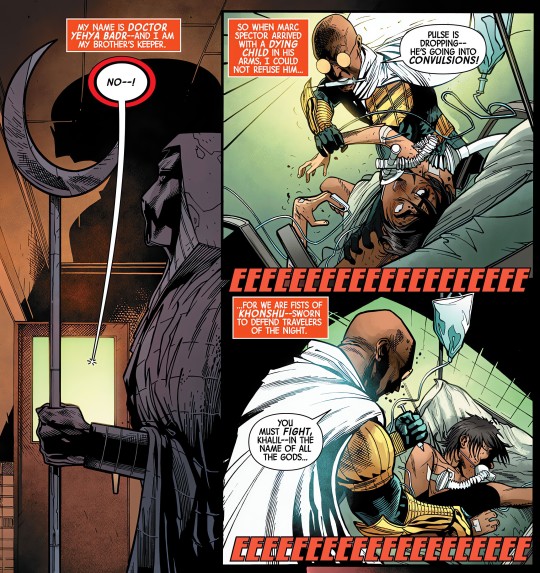
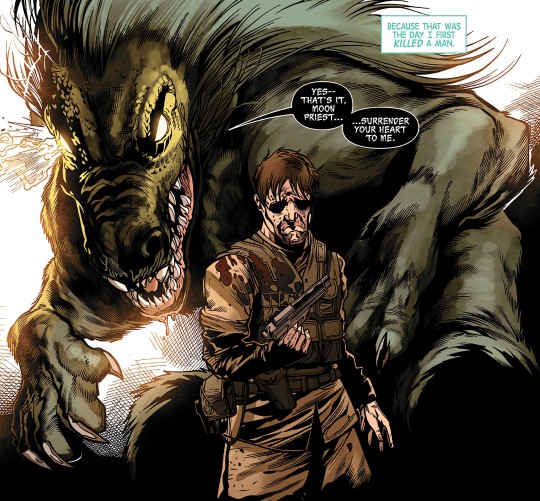
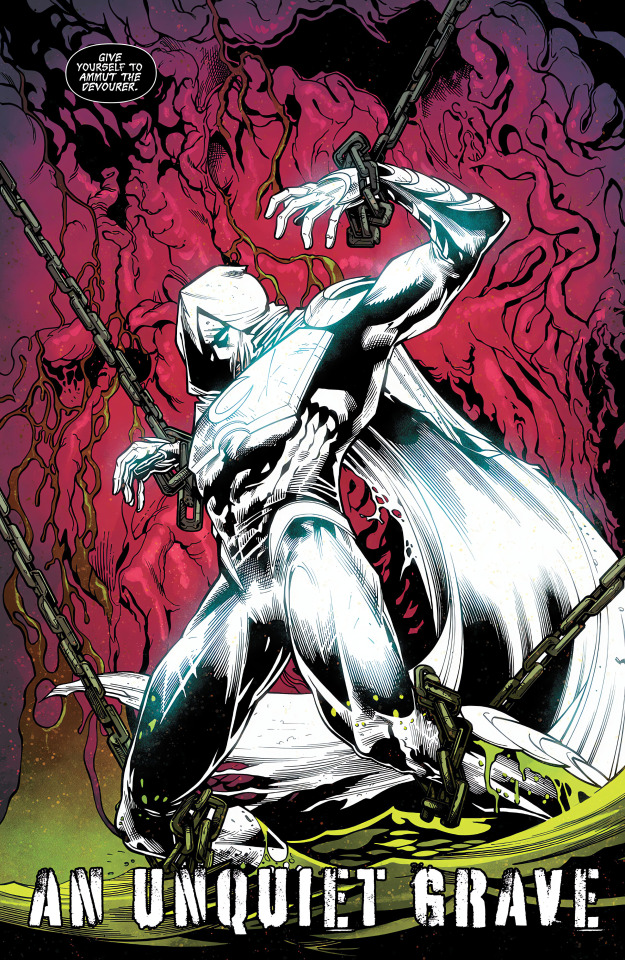







From Moon Knight: City of the Dead #004, “An Unquiet Grave”
Art by Marcelo Ferreira, Jay Leisten, Rachelle Rosenberg and Fer Sifuentes-Sujo
Written by David Pepose
#moon knight: city of the dead#hunter's moon#yehya badr#khalil nasser#ammut#moon knight#marc spector#elias spector#frenchie#jean-paul duchamp#raul bushman#scarlet scarab#layla el-faouly#jackal knight#randall spector#peter alraune#marlene alraune#diatrice alraune#marvel#comics#marvel comics
9 notes
·
View notes
Text
Pas moins de 146 putschs en Afrique depuis 1952. Un triste record classe l'Afrique parmi les continents les plus instables depuis la Seconde Guerre mondiale. La tentative de coup d'État qui se déroule en ce moment même au Gabon est en effet la 146e du nom depuis 1945 et le vaste mouvement de décolonisation des années 1960. Selon nos décomptes, 41 pays d'Afrique ont connu au moins une tentative sérieuse de renversement du pouvoir.
146 putschs en Afrique depuis 1952
Intervention militaire au Niger serait une déclaration de guerre au Burkina Faso et au Mali 1
L'Afrique est le continent qui a connu le plus de coups d'État depuis la fin de la colonisation. Selon une étude de l'Université de Heidelberg, il y a eu pas moins de 146 putschs en Afrique depuis 1952, dont 90 réussis et 56 avortés.
Ces événements ont souvent entraîné des changements de régime, des violences politiques et des crises humanitaires.
Dans le monde, 7 coups d'État sur 10 environ ont lieu en Afrique. Sur les 146 coups, 37 ont échoué, soit un taux de réussite de 75 % qui laisse à penser que la tentative de renverser le pouvoir est souvent payante?
Dans nos calculs, nous avons exclu les mutineries ou complots déjoués avant leur déclenchement, comme à Djibouti en février 2022.
Nasser, premier putschiste d'une longue série
La-guerre-par-les-m--dias-et-le-triomphe-de-la-propagande
L'Égypte inaugure cette longue série lorsque, dans la nuit du 22 au 23 juillet 1952, Nasser renverse la monarchie du roi Farouk Ier, heureusement sans effusion de sang.
Il faut attendre 1958 pour assister au deuxième coup d'État du continent : il a lieu au Soudan, le 17 novembre, quand l'armée empêche le Parlement de siéger et porte au pouvoir le général Ibrahim Abboud.
La République du Soudan avait obtenu son indépendance le 1er janvier 1958. Fait particulier : c'est le Premier ministre, Abdallah Khalil, un général à la retraite, qui a planifié ce coup d'État militaire contre son propre gouvernement de coalition?
les généraux soudanais en guerre
→À lire aussi
Gabon : "entre les militaires putschistes et l'opposition, une période de négociations"
Le Soudan, depuis, détient le record des putschs avec 10 renversements ou tentatives, le dernier en date remontant au 25 octobre 2021, lorsque l'armée soudanaise dépose le gouvernement de transition.
Le Premier ministre Abdallah Hamdok est arrêté, puis réinstallé dans ses fonctions le 21 novembre, avant de se retirer le 2 janvier 2022.
Guerre en Ukraine en un coup d'œil Avancée des troupes russes et bombardements
→À lire aussi
Tentative de coup d'État au Gabon : ce qu'il faut savoir sur le pays
Le Soudan précède deux autres pays particuliers éruptifs : Le Burundi, 8 coups d'État ou tentatives, depuis son indépendance le 1er juillet 1962, à égalité avec le Burkina Fasso (ancienne Haute Volta), indépendant depuis août 1960.
Soit environ une moyenne d'un coup d'État ou tentative tous les sept à huit ans. Parmi les pays les plus instables figurent également le Nigeria (7 coups d'État), le Congo, le Bénin (6), la République centrafricaine (6), le Tchad (6), les Comores (5), le Ghana (5), le Mali (5), la Guinée-Bissau (5), l'Éthiopie (4), l'Ouganda (4)?
Des dirigeants à vie
Le Niger, qui fait l'actualité ces jours-ci, avec le renversement et la séquestration du président Mohamed Bazoum, en est à son 6e putsch ou tentative depuis son indépendance le 18 décembre 1958.
Le premier putsch a eu lieu le 15 avril 1974, lorsque Senny Kountché prend le pouvoir par les armes avec le titre de « président du Conseil militaire suprême de la République du Niger ». Il exerce, de facto, la fonction de chef de l'État jusqu'à sa mort en novembre 1987.
146 putschs en Afrique depuis 1952
→À lire aussi
Niger : « La France paie en boomerang 60 ans d'interventionnisme en Afrique
Parmi les pays qui n'ont pas connu de coup d'État, on compte l'Afrique du Sud, où la transition vers la fin de l'apartheid s'est faite en douceur.
Le Malawi n'a pas connu de coup d'État dans la mesure où la Constitution, en 1970, a été modifiée pour confier à Hastings Kamuzu Banda le titre de « président à vie ».
Le régime est devenu une dictature mais Banda a dû quitter le pouvoir en 1994 à l'âge vénérable de 98 ans, non sans avoir été battu lors d'élections libres.
Si on découpe les périodes par décades, la palme revient aux seventies, avec 34 coups d'État ou tentatives, sous l'effet de la Guerre froide. Les années 1960 et 1980 culminent à 25 putschs ou tentatives.
Après la décennie 1980, on constate une décrue : 19 dans la décennie 1990 et 17 dans les années 2000, 15 dans les années 2010. Depuis 2020, en seulement trois ans et demi, les coups portés au pouvoir s'élèvent déjà à 10. Tout annonce une nouvelle phase d'instabilité en Afrique.
0 notes
Text

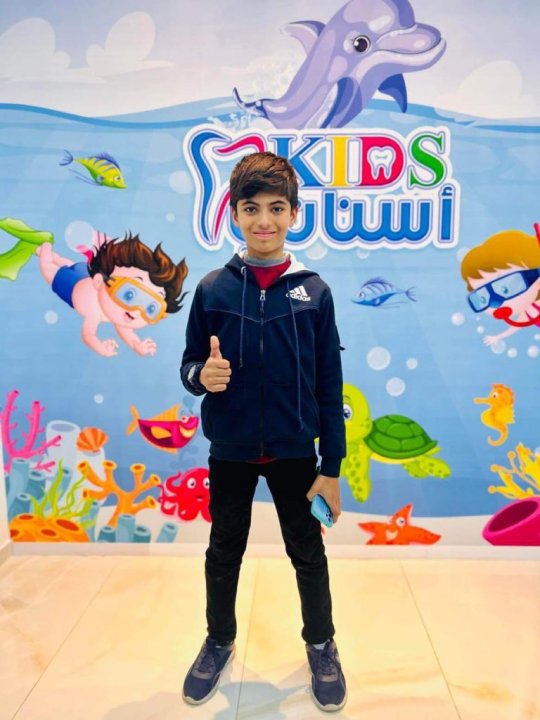
On 26 October, the Palestinian Ministry of Health released the list of names of Palestinians killed since 7 October. Among them, from the Shaheen family, are:
Walid Omar Ahmed (73);
Walid's son Murad Walid Omar (35) and his children Roua Murad Walid (7) and Shahin Murad Walid (6);
Gamal Youssef Abdellatif (70);
Abdullah Shaheen Ahmed (68);
Abdullah's son Muhammad Abdullah Shaheen (48) and his children Abdul Rahman Muhammad Abdullah (24), Farah Muhammad Abdullah (21), Anas Muhammad Abdullah (19), Ahmad Muhammad Abdullah (16), and Mahmud Muhammad Abdullah (9);
Na’ima Ahmed Abdelrahman (65);
Ibrahim Nimr Muhammad (65);
Sami Youssef Ismail (53) and his children Youssef Sami Youssef (33), Mustafa Sami Youssef (30), Isma'il Sami Youssef (28), Hadil Sami Youssef (23), and Lama Sami Youssef (17);
Mahmud Ayesh Mahmud (52) and his children Inshirah Mahmud Ayesh (29), Nesma Mahmud Ayesh (15), and Ali Mahmud Ayesh (9);
Wafa Saeed Mahmud (52);
Mahmud Abdelhalim Muhammad (51), pictured above, and his sibling Mostaganem Abdelhalim Muhammad (47), named for the Algerian city and province;
Bushra Abdelfattah Jaber (44);
Hiba Hindi Hegazy (41);
Haytham Muhammad Ali (31);
Abdul Rahman Salman Juma (29);
Rahima Saadi Muhammad (26) and her unnamed infant son;
Warda Ibrahim Ayesh (25) and her siblings Yasmin Ibrahim Ayesh (24) and Azhar Ibrahim Ayesh (22);
Yahya Sultan Zayed (11), "the only child of his parents. He had memorized the Quran and stood out among his peers, ranking first among them. He had a dream of becoming an astronaut;"
Tariq Mahmud Abdullah (11) and his brother Abdullah Mahmud Abdullah (10);
Muhammad Bara’a Tayseer (10);
Rahaf Rami Sadiq (7);
Aisha Jihad Jalal (less than a year old);

Thaer Abdullah (36), who was martyred when iof forces stormed Far'a camp north of Nablus;
Samiya Muhammad Omar (63) and her brother Bassam Muhammad Omar (59);
Ahmed Adib Muhammad (23) and his sister Mai Adib Muhammad (37);
Fawzia Yusuf Muhammad (26);
Ibrahim Osama Muhammad (13) and his siblings Anwar Osama Muhammad (28) and Samar Osama Muhammad (22);
Fatin Awad Abdel Rahman (35);
Yahya Bahaa Muhammad (21);
Latifa Ahmed Hamed (82);
Adib Muhammad Adib (9);
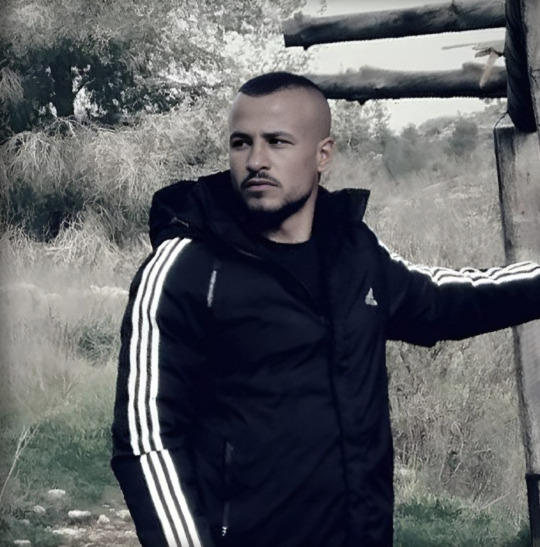
Yusuf Muhammad Yusuf (33), who was martyred after leaving a mosque in Budrus, west of Ramallah;
Iman Nabil Deeb (27);
Sahar Musa Ahmed (56);
Hassan Nasser Ahmed (17);
Ahmed Khalil Ahmed (15) and his siblings Mahmud Khalil Ahmed (10), Muhammad Khalil Ahmed (14), Iman Khalil Ahmed (2), and Ziad Khalil Ahmed (9);
Layan Bakr Ismail (9);
and Iman Ziad Hussein (36).
You can read more about the human lives lost in Palestine on the Martyrs of Gaza Twitter account and on my blog.
4 notes
·
View notes
Text
Pas moins de 146 putschs en Afrique depuis 1952. Un triste record classe l'Afrique parmi les continents les plus instables depuis la Seconde Guerre mondiale. La tentative de coup d'État qui se déroule en ce moment même au Gabon est en effet la 146e du nom depuis 1945 et le vaste mouvement de décolonisation des années 1960. Selon nos décomptes, 41 pays d'Afrique ont connu au moins une tentative sérieuse de renversement du pouvoir.
146 putschs en Afrique depuis 1952
Intervention militaire au Niger serait une déclaration de guerre au Burkina Faso et au Mali 1
L'Afrique est le continent qui a connu le plus de coups d'État depuis la fin de la colonisation. Selon une étude de l'Université de Heidelberg, il y a eu pas moins de 146 putschs en Afrique depuis 1952, dont 90 réussis et 56 avortés.
Ces événements ont souvent entraîné des changements de régime, des violences politiques et des crises humanitaires.
Dans le monde, 7 coups d'État sur 10 environ ont lieu en Afrique. Sur les 146 coups, 37 ont échoué, soit un taux de réussite de 75 % qui laisse à penser que la tentative de renverser le pouvoir est souvent payante?
Dans nos calculs, nous avons exclu les mutineries ou complots déjoués avant leur déclenchement, comme à Djibouti en février 2022.
Nasser, premier putschiste d'une longue série
La-guerre-par-les-m--dias-et-le-triomphe-de-la-propagande
L'Égypte inaugure cette longue série lorsque, dans la nuit du 22 au 23 juillet 1952, Nasser renverse la monarchie du roi Farouk Ier, heureusement sans effusion de sang.
Il faut attendre 1958 pour assister au deuxième coup d'État du continent : il a lieu au Soudan, le 17 novembre, quand l'armée empêche le Parlement de siéger et porte au pouvoir le général Ibrahim Abboud.
La République du Soudan avait obtenu son indépendance le 1er janvier 1958. Fait particulier : c'est le Premier ministre, Abdallah Khalil, un général à la retraite, qui a planifié ce coup d'État militaire contre son propre gouvernement de coalition?
les généraux soudanais en guerre
→À lire aussi
Gabon : "entre les militaires putschistes et l'opposition, une période de négociations"
Le Soudan, depuis, détient le record des putschs avec 10 renversements ou tentatives, le dernier en date remontant au 25 octobre 2021, lorsque l'armée soudanaise dépose le gouvernement de transition.
Le Premier ministre Abdallah Hamdok est arrêté, puis réinstallé dans ses fonctions le 21 novembre, avant de se retirer le 2 janvier 2022.
Guerre en Ukraine en un coup d'œil Avancée des troupes russes et bombardements
→À lire aussi
Tentative de coup d'État au Gabon : ce qu'il faut savoir sur le pays
Le Soudan précède deux autres pays particuliers éruptifs : Le Burundi, 8 coups d'État ou tentatives, depuis son indépendance le 1er juillet 1962, à égalité avec le Burkina Fasso (ancienne Haute Volta), indépendant depuis août 1960.
Soit environ une moyenne d'un coup d'État ou tentative tous les sept à huit ans. Parmi les pays les plus instables figurent également le Nigeria (7 coups d'État), le Congo, le Bénin (6), la République centrafricaine (6), le Tchad (6), les Comores (5), le Ghana (5), le Mali (5), la Guinée-Bissau (5), l'Éthiopie (4), l'Ouganda (4)?
Des dirigeants à vie
Le Niger, qui fait l'actualité ces jours-ci, avec le renversement et la séquestration du président Mohamed Bazoum, en est à son 6e putsch ou tentative depuis son indépendance le 18 décembre 1958.
Le premier putsch a eu lieu le 15 avril 1974, lorsque Senny Kountché prend le pouvoir par les armes avec le titre de « président du Conseil militaire suprême de la République du Niger ». Il exerce, de facto, la fonction de chef de l'État jusqu'à sa mort en novembre 1987.
146 putschs en Afrique depuis 1952
→À lire aussi
Niger : « La France paie en boomerang 60 ans d'interventionnisme en Afrique
Parmi les pays qui n'ont pas connu de coup d'État, on compte l'Afrique du Sud, où la transition vers la fin de l'apartheid s'est faite en douceur.
Le Malawi n'a pas connu de coup d'État dans la mesure où la Constitution, en 1970, a été modifiée pour confier à Hastings Kamuzu Banda le titre de « président à vie ».
Le régime est devenu une dictature mais Banda a dû quitter le pouvoir en 1994 à l'âge vénérable de 98 ans, non sans avoir été battu lors d'élections libres.
Si on découpe les périodes par décades, la palme revient aux seventies, avec 34 coups d'État ou tentatives, sous l'effet de la Guerre froide. Les années 1960 et 1980 culminent à 25 putschs ou tentatives.
Après la décennie 1980, on constate une décrue : 19 dans la décennie 1990 et 17 dans les années 2000, 15 dans les années 2010. Depuis 2020, en seulement trois ans et demi, les coups portés au pouvoir s'élèvent déjà à 10. Tout annonce une nouvelle phase d'instabilité en Afrique.
0 notes
Text
March 2, 2001, 9-year-old Palestinian boy shot to death in his home by Israeli Army
The boy, Obei Darraj, age nine, was killed on Friday March 2, 2001 in his family’s home, in El Bireh. The little boy was watching his father paint the wall of a brother’s bedroom when gunfire crashed through its window, and hit the child in the chest.The Israeli army took credit for the killing, saying: “The gunfire came in retaliation to Palestinian shots aimed at the Psagot settlement” (Ha’aretz, March 4, 2001).
March 15, 2001, Israeli army targets Palestinian children in grenade attack on playground
Palestinian child, wounded in Israeli army grenade attack on his schoolyard, is carried to an ambulance
“In the Old City of Hebron, (March 15, 2001), Israeli soldiers lobbed a stun grenade into a schoolyard during an elementary students’ demonstration. The students were throwing stones at Israeli cars, Israeli officials said. Six students suffered moderate or light wounds, including burns, broken bones and blisters, Palestinian officials said. The Israelis said five Palestinian children had experienced ‘light impact injuries from the grenade.’
“‘The army sees the removal of children from the circle of violence as extremely important,’ an Israeli army statement said. The army will ‘continue to act against anyone trying to compromise the security of Israeli citizens,’ it said.”
Source: N.Y. Times, March 16, 2001, p. A-10
“Six Palestinian children suffered burns on Thursday (March 15, 2001) when Israeli soldiers threw a stun grenade into a West Bank schoolyard in new violence after an Israeli pledge to ease its blockade on Palestinians. Doctors in Hebron said three of the six children sustained burns to the head, hands and back and the other three were suffering from blisters and shock. ‘Why did they throw the grenade into the yard? This is only a provocation,’ said teacher Mohammed Hawaismah as parents carried children out of the school and into ambulances.”
Source: Reuters, March 15, 2001
May 7, 2001, Israelis Kill Baby Girl and School-Teacher, Wound Ten other Children in Refugee Camp
Khan Yunis Refugee Camp, Palestine, Israeli troops shelled homes in this Arab refugee camp today and fired large-caliber machine guns, killing a 4-month-old baby girl and wounding 24 civilians. Doctors said 10 Palestinian children were among the injured.
One Israeli cannon shell hit the shack of the Hijo family in the refugee camp, instantly killing 4-month-old Iman Hijo, with shrapnel tearing a hole into the infant’s back. The girl’s 19-year-old mother, as well as three brothers and sisters, were wounded, including 18-month-old Mahmoud Hijo, was in intensive care at Nasser Hospital with shrapnel wounds, doctors said.
The slain infant’s uncle, Wael Hijo, carried the girl’s body from the hospital’s autopsy room to the X-ray department. In the emergency room, Iman’s 7-year-old aunt, Dunya, sat on a bed with a dazed look on her face, her frilly white-and-green dress pulled up above scraped and bandaged legs. “They killed the baby,” Dunya said, then burst into tears.
Israeli troops also fired on the refugee camp’s Khaldieh School in the West Bank, killing a Palestinian school-teacher.
June 2001, Ali Murad Abu Shaweesh was 12 when Israeli soldiers shot him in the back. Ali was killed on the same day in June, 2001 that Sharon refused to let the Israeli foreign minister, Shimon Peres, meet with Yasir Arafat, yet his death also went unnoticed by American television news. But not entirely unnoticed, since the Israeli soldiers, who taunted the Palestinian boys over loudspeakers outside the Khan Yunis refugee camp in the Gaza Strip, goading them to come out and throw rocks, did so under the gaze of Chris Hedges, a reporter for the New York Times.
July 7, 2001, Israeli Army Opens Fire on Children’s Playground
“Ibrahim Al-Mugrabi weeps over his 11-year-old son, Khalil Ibrahim, who was slain in the Rafah section of the Gaza ghetto after the Israeli army strafed the boy’s playground with machine gun fire.
Khalil Ibrahim al-Mugrabi, 11, was shot in the head and killed July 7, 2001 near Rafah in the Gaza ghetto. Two other Arab children playing with him were wounded, one seriously, after the Israeli army sprayed machine gun fire at a crowd of Arab children.
The children were gunned down by Israeli soldiers from a Jewish guard tower as they were playing. Doctors said the dead Palestinian boy was shot in the head and that a 10-year-old boy was seriously wounded with a gun shot to the stomach. A third Palestinian boy, age 12, was injured less seriously.
Mohammed Abu-Shikadem, 29, who was nearby when the shootings took place, said that a group of some 30 children were playing near the refugee camp when he heard a burst of machine gun fire from the Israeli guard tower. ‘Two of the children fell in front of my eyes,’ Abu-Shikadem said.”
Ibrahim Al-Mugrabi weeps over his 11-year-old son, Khalil Ibrahim, who was slain in the Rafah section of the Gaza ghetto after the Israeli army strafed the boy's playground with machine gun fire.
July 19, 2001, “The body of murdered 3-month-old Palestinian infant Diya Tmaizi, center, is flanked by murdered Palestinian civilians Mohammed Hilmy Tmaizi, 20, right, and Mohammed Salameh Tmaizi, 22, left, in the West Bank village of Idna, near Hebron. The Palestinian baby and the other civilians were shot and killed, and at least four other Palestinian civilians were injured late Thursday, July 19, 2001, near Idna. According to Israeli radio, a Jewish ‘settler’ group took responsibility for the murders.”
July 31, 2001, Israeli government assassinated Palestinian leaders Jamal Mansour and his cousin Omar Mansour, in an attack on their office in the West Bank town of Nablus. Six other Palestinians were killed in the Jewish ambush, including two little boys, Bilal Abu Khader, 8, and Ashraf Abu Khader, 5.
August 5, 2001, Amer Mansour Habiri 23, who was assassinated by Israelis in a missile attack on Aug. 5, 2001 in the West Bank town of Tulkarem.
August 12, 2001, Israeli soldiers shot eight-year-old Palestinian girl, Sabreen Abu Sneineh, in the head, in Hebron.
August 15, 2001, 27 year old Emad Abu Sneineh was assassinated by Israeli agents outside his home in Hebron.
August 19, 2001, Mohammed Abu Arrar, 14, shot to death in the Gaza ghetto by Israeli soldiers.
Aug. 22, 2001, The automobile of an 18 year old Palestinian incinerated by an Israeli death squad at the Bureij refugee camp, outside the Gaza ghetto, Aug. 22, 2001. The Israelis sought to assassinate his father. The teenage son was killed instead. Murders of goyim (non-Jews) in this manner are dismissed as “collateral damage” by the Judeo-masonic establishment in America.
August 23, 2001, Mohammed …Zionist occupation troops shot dead the 11-year old Palestinian boy in the Gaza ghetto on August, 23, 2001. Haaretz newspaper reported: “Witnesses said that Mohammed Zurub was shot in the heart after throwing stones at IDF (Israeli) troops.”
September 9, 2001, 13-year-old Mohammed Abu Libda, who was shot to death by Israeli troops.
The sister of 13-year-old Mohammed Abu Libda, who was shot to death by Israeli troops, cries during his funeral as her brother's body is brought home in southern Gaza, September 9, 2001.
November 22, 2001, five Palestinian school boys ages 7 to 14 were on their way to classes in the Gaza strip when they were killed by a bomb planted by Israeli forces.
Israel “....places explosive charges where children are likely to pass and then claims that only the other side practices terrorism?”
Gideon Levy,“On The Way To School,” Ha’aretz, Nov. 26, 2001
December 10, 2001, Two-year-old victim, Burhan Sidir blown apart by Israelis blew him apart. His head was found in the street. His legs were in different places. 13 year old Shadi Arafi killed by Israeli forces. Two brothers, aged 8 and 10 were also seriously injured in the Dec. 10 Israeli attack.
13 year old Shadi Arafi
December 10, 2001, “Palestinian activist Muhammad Sidir, 24, had his face maimed and burned and his eyes blinded by a U.S. made Israeli helicopter firing missiles in a crowded intersection during an assassination attempt on Sidir. Two Palestinian children died in the attacks and two other children were injured. Israeli helicopter gunships hovered over the carnage for five minutes, preventing immediate medical attention from being administered to the wounded and dying.” http://www.revisionisthistory.org/palestine7.html
December 17, 2001, Israeli troops murder Palestinian activist Yacoub Aidkadik
December 18, 2001, Mohammed Houmeduk, 12, shot and killed in cold blood Dec. 18, 2001 in the Khan Younis refugee camp in the Gaza Strip, by Israeli soldiers.
0 notes
Text
GAMING RECAP (JULY 1-6)
Xbox and Bethesda confirmed for Gamescom 2023

The organisers of Gamescom have announced that Microsoft will be attending this year's event in Cologne.
A tweet from the official account this morning confirms both Xbox and Bethesda will be on the show floor when Gamescom returns to Koelnmesse from August 23 to 27.
The world's largest games show has secured the presence of two of the three platform holders, with Nintendo's attendance announced back in April.
Continue reading
Assassin’s Creed Mirage will let you take a virtual historical tour around Baghdad
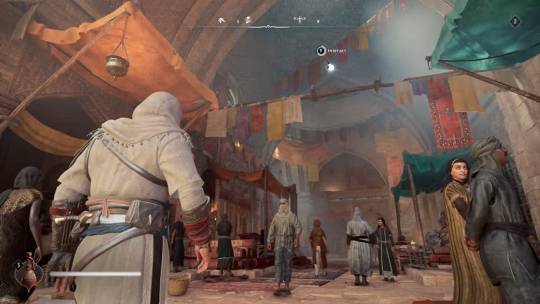
Assassin’s Creed Mirage’s History of Baghdad feature follows in the footsteps of the Discovery Tour modes for Origin’s Egypt, Odyssey’s Greece and Valhalla’s Viking England in trying to offset the long-running series’ love of ridiculous sci-fi nonsense in its overarching plot about god-like alien things and magical MacGuffins by imparting actual knowledge about the real-life inspiration for its setting.
In the case of Mirage’s History of Baghdad, exploring future assassin Basim’s home city will unlock tidbits about the places, objects and events you witness. These nuggets of information will be accessible via a codex that features photographs of real artefacts and artwork provided by museums and other institutions, alongside insights from a bunch of experts, including Copenhagen’s The David Collection, the Paris-based Institut du monde arabe, the art collections of Professor Sir Nasser D. Khalil (which spans a staggering 35,000 items) and the Shangri La Museum of Islamic Art, Culture & Design in Honolulu.
Continue reading
Mario Kart 8 Deluxe’s Booster Course Wave 5 DLC launches next week
youtube
The first details on Wave 5 were revealed during a Nintendo Direct presentation in June, when it was confirmed that the DLC will include a new course called Squeaky Clean Sprint.
Continue reading
Overwatch 2 is getting what looks like an animated prequel mini-series next week

Overwatch 2 is getting an animated mini-series next week, and it looks to be a prequel exploring the Omnic Crisis.
Since the first game's release in 2016, Overwatch has had numerous animated shorts that explore the backstories of numerous characters, going into some of the larger story here and there. But for the first time, Blizzard is releasing a 2D animated mini-series called Genesis - Part One: Dawn, which looks to go into more detail about the Omnic Crisis, the big inciting incident of the whole world of Overwatch.
Continue reading
Dying Light 2 getting crossover event with The Walking Dead
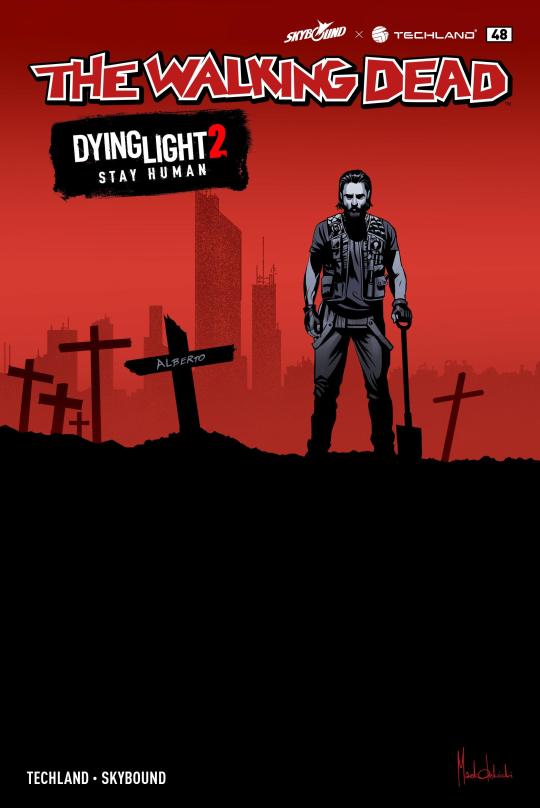
Techland has announced that the next Summer of Horrors event in Dying Light 2 will be a crossover with the fantastic The Walking Dead.
Dying Light 2: Stay Human has just kicked off Summer of Horrors with the launch of the Good Night, Good Luck update and Bloody Nights event. As the event draws to a close, Techland has now announced that a crossover event with The Walking Dead will arrive soon.
Continue reading
1 note
·
View note
Text
Netflix’s “Palestinian Stories” collection launched last Friday, featuring 32 films by Palestinians and/or about Palestinian stories!
In light of the launch, we’ve highlighted 9 stories to get you started—ranging from satirical comedies to award-winning documentaries.
Tag who you want to watch these films with below!
Here is a list of some of the films that were just added:
- Salt of this Sea (by Annemarie Jacir)
- The Present (by Farah Nabulsi)
- When I Saw You (by Annemarie Jacir)
- Ghost Hunting (by Raed Andoni)
- Ave Maria (by Basil Khalil)
- Frontiers of Dreams and Fears (by Mai Masri)
- Children of Shatila (by Mai Masri)
- 3000 Nights (by Mai Masri)
- A Man Returned (by Mahdi Fleifel)
- A Drowning Man (by Mahdi Fleifel)
- 3 Logical Exits (by Mahdi Fleifel)
- A World Not Ours (by Mahdi Fleifel)
- Xenox (by Mahdi Fleifel)
- Divine Intervention (by Elia Suleiman)
- Paradise Now (by Hany Abu-Assad)
- Chronicle of a Disappearance (by Elia Suleiman)
- In Vitro (by Larissa Sansour)
- Maradona's Legs (by Firas Khoury)
- The Crossing (by Ameen Nayfeh)
- Bonbone (by Rakan Mayasi)
- Condom Lead (by Arab and Tarzan Nasser)
- Mars at Sunrise (by Jessica Habie)
- Girafada (by Rani Massalha)
- Samouni Road (by Stefano Savona)
- The Wanted 18 (by Amer Shomali and Paul Cowan)
Repost Institute for Middle East Understanding ( IMEU )

268 notes
·
View notes
Photo







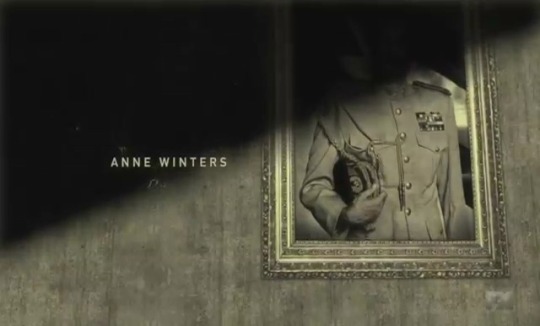


Tyrant - FX - June 24, 2014 - September 7, 2018
Drama (32 episodes)
Running Time: 60 minutes
Stars:
Adam Rayner as Bassam "Barry" Al-Fayeed (Khalil in seclusion)
Jennifer Finnigan as Molly Al-Fayeed
Ashraf Barhom as Jamal Al-Fayeed
Moran Atias as Leila Al-Fayeed
Noah Silver as Sami Al-Fayeed
Alice Krige as Amira Al-Fayeed
Alexander Karim as Ihab Rashid (recurring cast Season 1, main cast Season 2–3)
Cameron Gharaee as Ahmed Al-Fayeed (recurring, season 1; main, seasons 2–3).
Sibylla Deen as Nusrat Al-Fayeed (recurring, seasons 1 & 3; main, season 2)
Anne Winters as Emma Al-Fayeed (main, season 1; special guest, seasons 2–3).
Fares Fares as Fauzi Nadal (main, season 1; special guest, seasons 2–3)
Justin Kirk as John Tucker (season 1)
Salim Daw as Yussef (season 1)
Mehdi Dehbi as Abdul (season 2)
Chris Noth as General William Cogswell (season 3)
Melia Kreiling as Daliyah Al-Yazbek (recurring, season 2; main, season 3)
Nasser Faris as Khaled Al-Fayeed
#Tyrant TV#FX#Drama#2000's#Adam Rayner#Jennifer Finnigan#Ashraf Barhom#Moran Atias#Noah Silver#Anne Winters#Salim Daw#Mehdi Dehbi#Alice Krige
3 notes
·
View notes